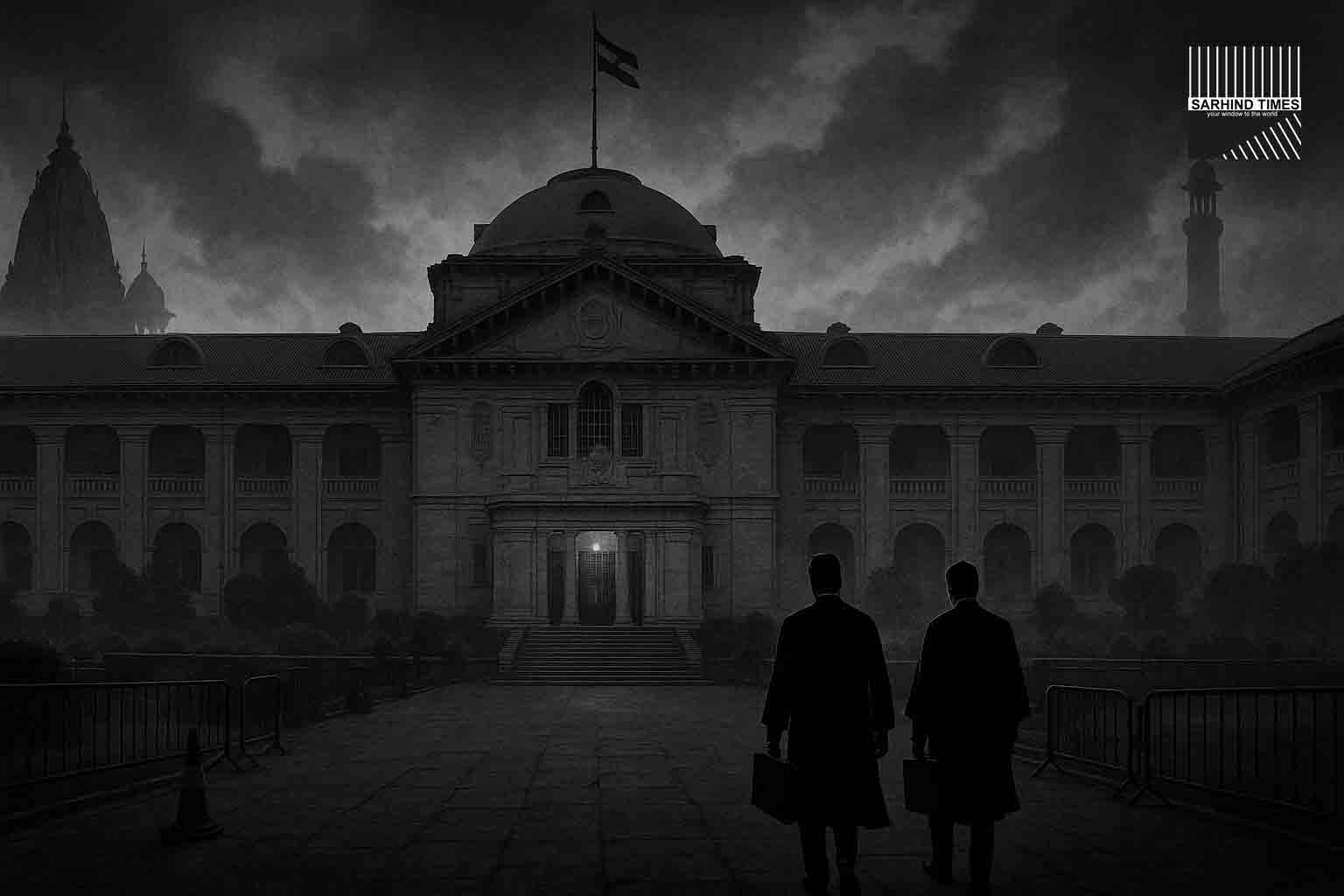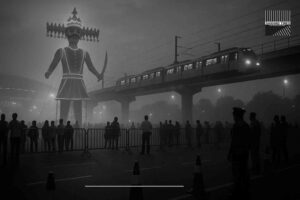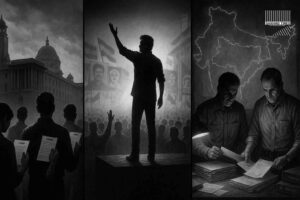By Sarhind Times Legal Bureau
Allahabad, October 2 –
The long-running and sensitive dispute surrounding the Krishna Janmabhoomi–Shahi Idgah complex in Mathura took another turn this week, as the Allahabad High Court refused a plea seeking the removal of the “next friend” of the deity in the matter. The order, delivered by Justice R.M.N. Mishra, underscores both the procedural safeguards within Indian jurisprudence and the careful balancing act required when adjudicating disputes that touch upon religious sentiments and historical claims.
The High Court made it clear that replacing the “next friend” — the individual legally permitted to represent the deity in court — cannot be undertaken lightly. Such a move, Justice Mishra observed, would constitute a “drastic step” and must be justified only if there is concrete proof that the current representative is acting against the interests of the deity.
Understanding the “Next Friend” Concept
In Indian legal tradition, a deity is recognized as a juristic person, capable of owning property and being a litigant. However, as a spiritual entity, it cannot physically appear in court. This is where the concept of a “next friend” arises — an appointed individual who represents the deity’s interests.
Over decades, this principle has been applied in several landmark temple and religious site disputes, from the Ayodhya Ram Janmabhoomi–Babri Masjid case to the ongoing issues in Kashi Vishwanath–Gyanvapi.
In Mathura, the deity of Lord Krishna has been represented through such a legal framework, with the “next friend” making decisions on filings, pleadings, and applications.
The petition rejected by the High Court sought to oust the current “next friend” on the allegation that his representation was no longer impartial or beneficial to the deity’s interests. However, the Court’s refusal to intervene keeps the status quo intact.
The Court’s Reasoning
Justice Mishra’s order emphasized three points:
- Drastic Remedy: Removing the next friend cannot be treated as a casual procedural adjustment. It fundamentally alters representation of a juristic entity.
- Proof Required: The Court stated that without clear and undeniable evidence that the “next friend” was acting contrary to the deity’s benefit, such a substitution cannot be permitted. Mere suspicion or dissatisfaction with litigation strategy does not suffice.
- Preservation of Continuity: The ruling maintains the ongoing line of legal strategy and prevents multiplicity of representation, which could otherwise complicate proceedings.
The Court’s stance echoes earlier rulings in similar religious cases, where continuity and stability in representation have been preferred over abrupt changes.
A Dispute with Deep Historical Roots
The Krishna Janmabhoomi–Shahi Idgah dispute is rooted in centuries-old claims. The site, located in Mathura, holds immense religious significance for Hindus as the birthplace of Lord Krishna.
- On one side, Hindu petitioners assert that the land historically belonged to the temple and that the Shahi Idgah mosque, built during the Mughal era, encroaches upon the temple’s original land.
- On the other, representatives of the Idgah committee defend the mosque’s standing and cite agreements and legal precedents that validate their position.
The dispute has generated dozens of cases across trial courts and High Courts, each seeking remedies ranging from the transfer of property to declarations of ownership.
The High Court’s latest decision does not resolve these substantive issues but affects the procedural pace and strategy of the litigation.
Implications of the Order
Legal analysts say the ruling does three things:
- Maintains Status Quo: By refusing to remove the “next friend,” the Court keeps the existing representation and litigation path unaltered.
- Avoids Precedent of Instability: Had the Court permitted substitution without strong grounds, it could have opened the floodgates to repeated challenges in other religious disputes.
- Signals Judicial Caution: The judiciary is conscious of the political and social sensitivities of temple-mosque disputes. A cautious approach minimizes the risk of inflaming passions while substantive hearings continue.
What Lies Ahead?
The case is far from over. Multiple suits are still pending in district courts, even as fresh applications are being filed in the High Court. Parties are expected to continue seeking procedural remedies and interim orders.
Legal scholars suggest that the matter may eventually reach the Supreme Court, much like the Ayodhya dispute did. If that occurs, the apex court would likely deal not just with the “next friend” issue but the larger question of ownership and historical title.
Voices from the Ground
Local reactions in Mathura highlight the deep emotional investment communities have in the case.
- Hindu devotees expressed relief at the Court’s refusal to disturb the current representation, seeing it as a step toward protecting temple interests.
- Idgah representatives maintained that the ruling does not alter the fundamental position of law in their favor but helps prevent unnecessary procedural disruptions.
Activists, meanwhile, caution against reading too much into the order:
“This is a procedural matter. The real questions — of property, history, and religious rights — remain unanswered,” said a constitutional lawyer based in Delhi.
Broader Legal and Social Significance
This ruling reflects a broader theme in Indian jurisprudence: balancing legal procedure with socio-religious sensitivities.
The judiciary’s handling of such disputes has historically leaned toward gradualism — preferring stability, avoiding sudden disruptions, and ensuring that final decisions come after exhaustive hearings and evidence.
This approach ensures that courts are not seen as succumbing to political or public pressure, but rather as neutral arbiters of law.
Conclusion
As the Krishna Janmabhoomi–Shahi Idgah case continues to wind its way through the courts, the Allahabad High Court’s refusal to remove the deity’s “next friend” underscores the importance of continuity, stability, and evidence-based decision-making in sensitive religious disputes.
While the substantive questions of ownership, history, and rights remain pending, this order represents another step in the legal journey — one that may ultimately culminate in the Supreme Court.
For now, the status quo holds, the legal battles continue, and the eyes of the nation remain fixed on Mathura.
#MathuraCase #AllahabadHC #ShahiIdgah #KrishnaJanmabhoomi #Courts #Law #TempleDispute #IndiaLegal




+ There are no comments
Add yours